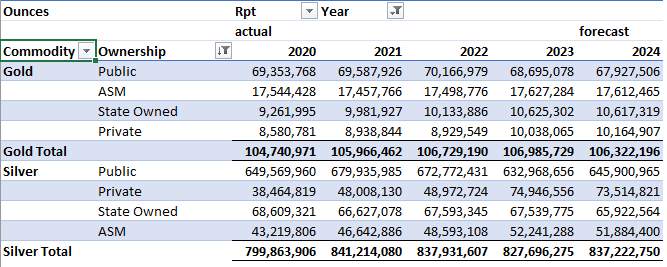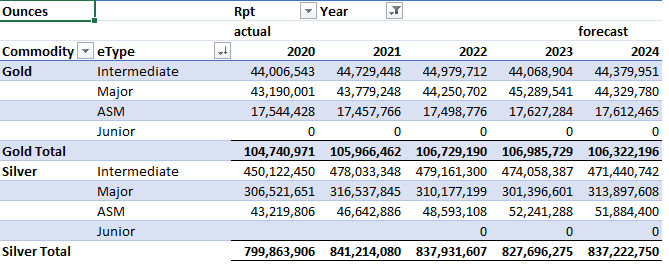Mine Ownership Models
Broadly, mine ownership of precious metals production, over the last five years, can be split between: large scale mining (LSM) and artisanal and small-scale mining (ASM).

Mine Ownership Type
A more refined lens on precious metals mine ownership is can be defined by type, size or focus:
- ownership type: public, private, and state owned enterprises, asm
- ownership size: majors, intermediates and asm (juniors have no production)
- ownership focus: primary or secondary producers



Artisanal and Small-Scale Mining
Artisanal and small scale mining gold production (ASM) is mining which takes place usually on an informal basis.
Specifically, artisanal mining means using largely manual labour. Small-scale mining, on the other hand, uses mechanical methods of extraction.
Generally, small scale mining is larger and more mechanised than artisanal but smaller and less industrial than large scale mining.
Production in each “artisanal zone” is assumed not to change much from year to year, unless there is a major event like a gold rush or some sort of natural or man-made disaster.
Due to volume requirements, at the current price of silver, artisanal silver mining is not economic. Silver is sometimes produced as a result of artisanal gold mining and is not usually the primary focus.
Small scale silver mining does take place, namely in: Bolivia, Peru, China, Russia and Mexico.